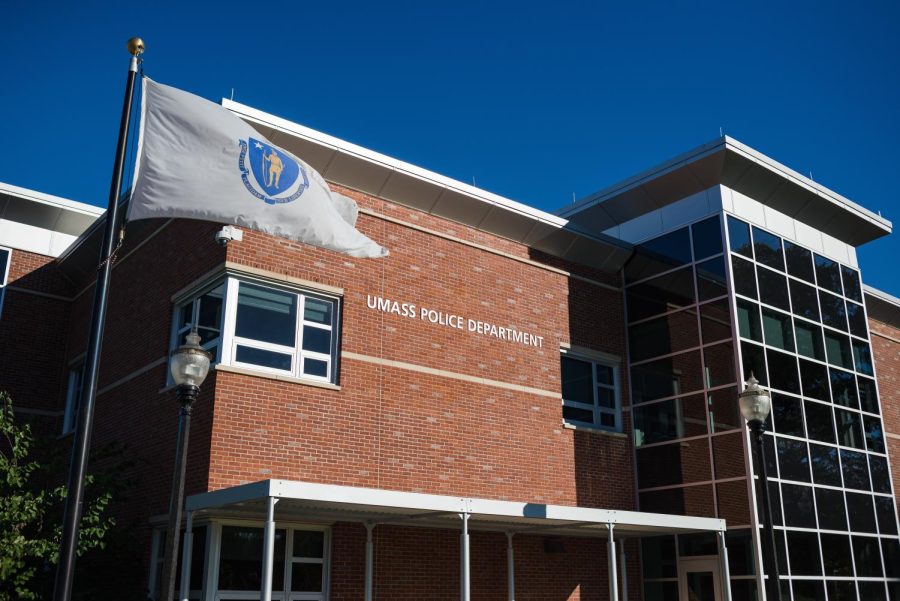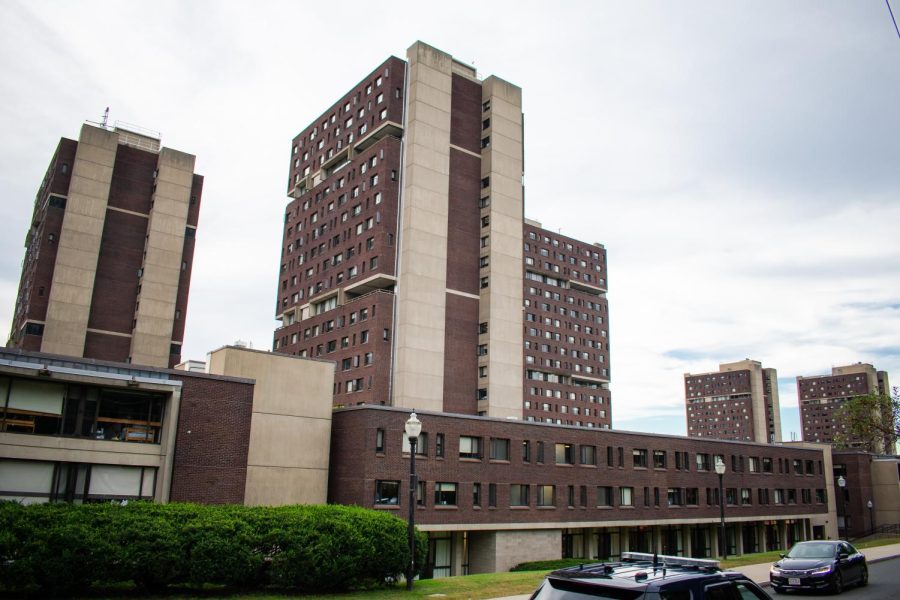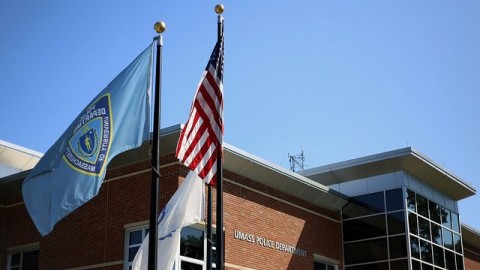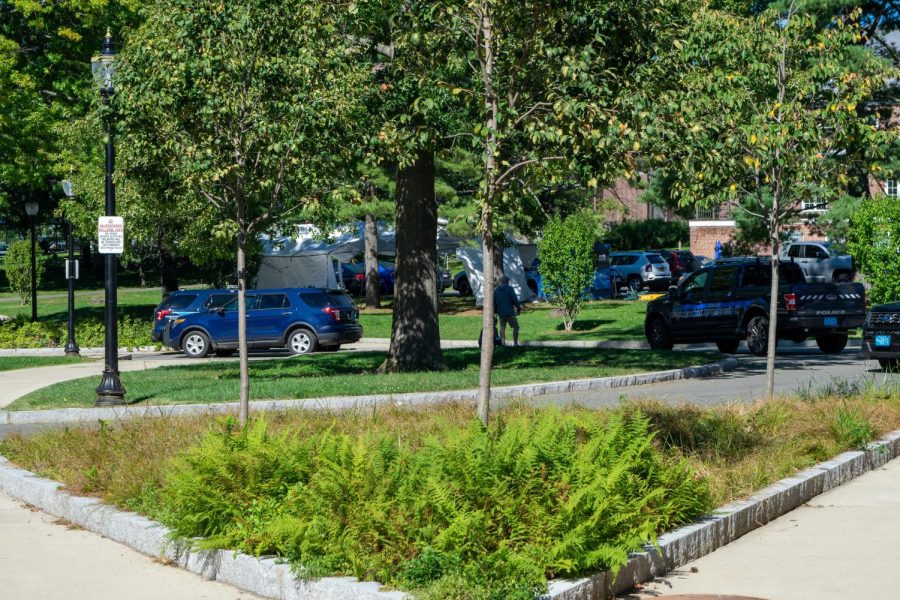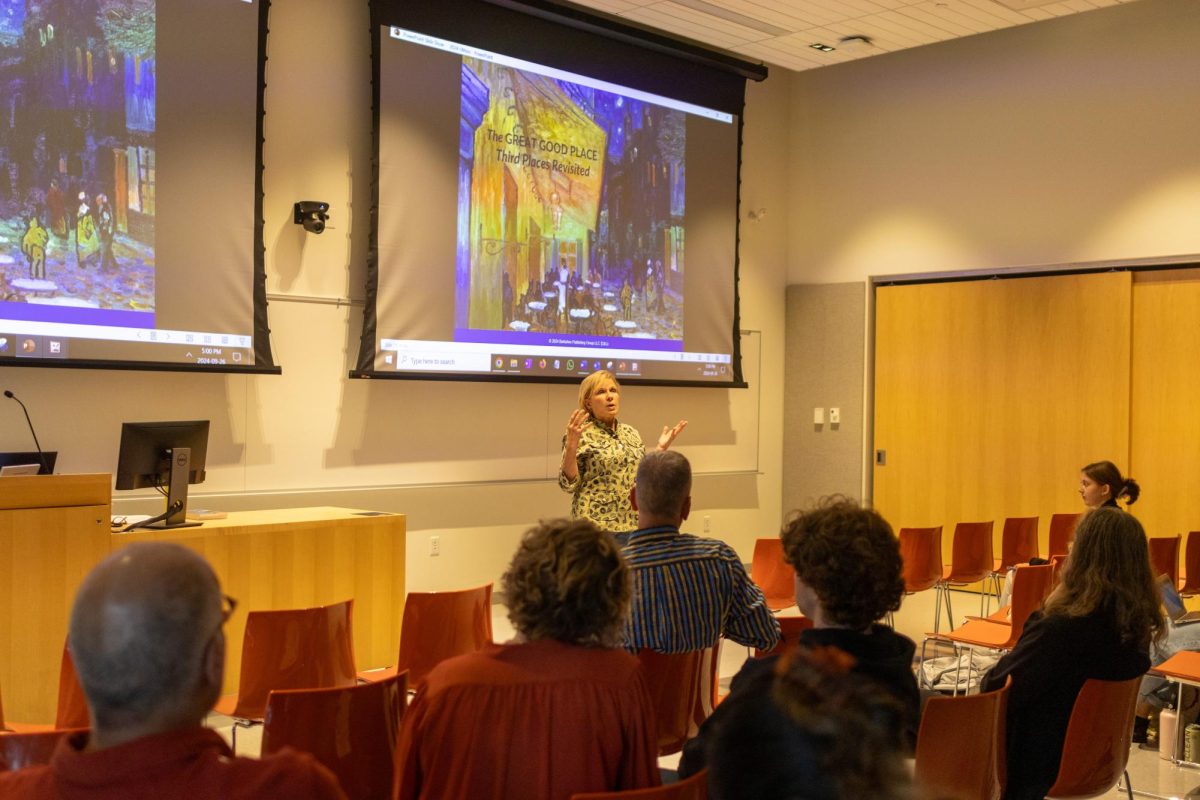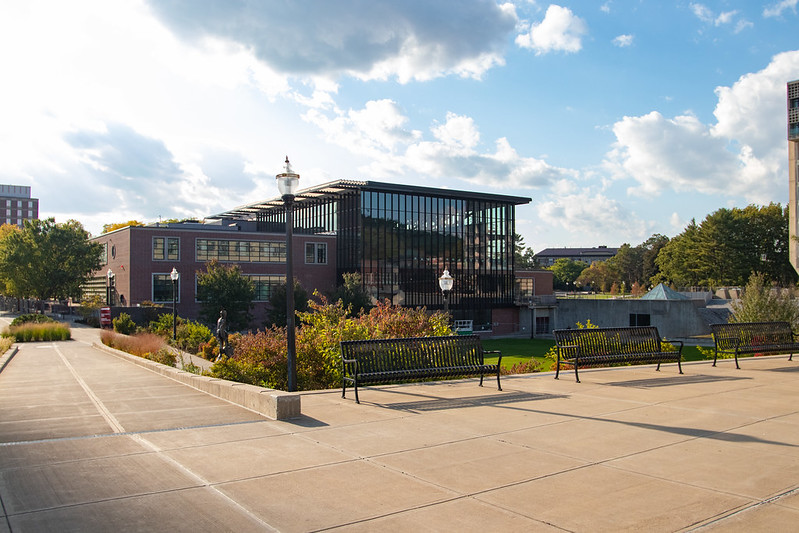
Students crowded a New Africa House hall and went over their lines in hushed voices.
They were waiting to audition for an upcoming series of Public Service Announcements about sexual assault, which were organized by the Massachusetts Northwestern District Attorney’s office in conjunction with an awareness campaign that hopes to highlight consent as the necessary element that separates sex and rape.
“We wanted to create a campaign that would be something students would recognize, that would be attractive to students, that students could relate to,” said Mary Kociela, programs director for the D. A.’s Domestic Violence and Sexual Assault Unit.
With the PSAs, which are intended to target college students, members of the student body from the Five College Consortium and Greenfield Community College were highly involved in the process of writing and editing the scripts, campaign organizers said.
Kociela and Assistant District Attorney Susan Loehn are working closely with students throughout the process to make the conversations and situations portrayed more relatable.
“We wanted to find a way to address the high incidence of sexual assault” on campuses, Loehn said.
Recent local cases of sexual assault brought the issue close to home for many students and faculty, encouraging the campaign, Loehn and Kociela said. An expansion of the unit in the District Attorney’s Office opened up the possibility of grant funding and increased resources.
The Domestic Violence and Sexual Assault Unit’s campaign, funded with an Edward Byrne Memorial Justice Assistance Grant, was launched to educate college-aged students about sexual assault, prevention and increased reporting of incidents.
A group composed of students and staff from the Five College area and GCC, staff from the D.A.’s Office, and media consultants, have worked since last fall to create and promote these efforts.
When auditions began, Natalia Muñoz, director of Verdant Multicultural Media, and Mary Patierno, principal of Reel Communication, asked students a few questions, including whether or not they would be comfortable portraying the characters described in the scenes. In attempting to re-create a party atmosphere, each individual PSA is centered on an archetypal party scene, while all three skits explicitly feature alcohol.
The campaign focus on emphasizing one’s inability to give full consent while under the influence was important to Kociela and Loehn.
“There is almost always drugs or alcohol involved on the part of one person and the victim,” Loehn said.
In addition to the persistent involvement of drugs and alcohol, a high level of miscommunications and gray areas make such cases difficult to prosecute, especially without physical evidence.
“They are very difficult cases,” Loehn said. “They are not stranger rapes. It’s people, it’s acquaintances, it’s friends of friends and there are a lot of miscommunications.”
The PSAs will be filmed on March 9 with the students selected for the scenes from the auditions. The campaign also hopes to recruit students to be extras in the scenes.
Any interest in being an extra can be directed to Muñoz, who can be reached at (413) 225-1210.
The PSAs will first be shown at a conference in early April, at which campaign participants will discuss the next steps both on campuses and in the community at large.
Emily Bedenkop can be reached at [email protected].







